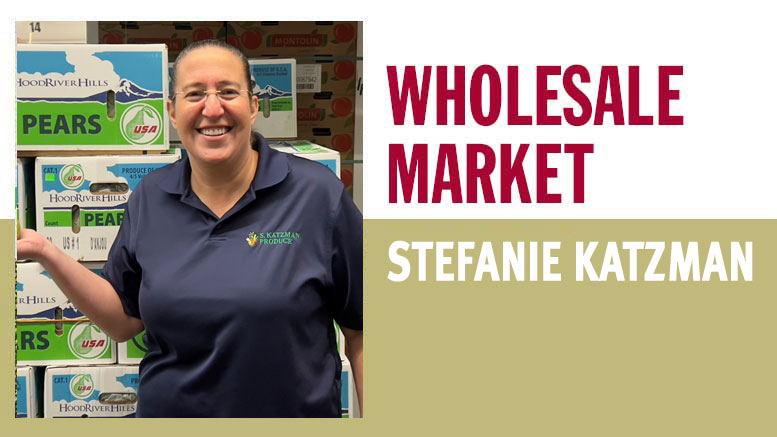An Apple a Day Keeps the Doctor Away 2.0
November 28, 2023 | 4 min to read
New initiatives known as produce prescriptions show promise in combating chronic conditions like heart disease and diabetes by promoting fresh produce consumption. Currently, over 100 pilot programs across the U.S. utilize these prescriptions, which are prescribed by healthcare providers to address diet-related health risks. The produce industry is urged to support these initiatives by collaborating with state Medicaid agencies and ensuring proper technology is in place for transactions, as this movement has the potential to enhance health outcomes and boost industry growth.

Originally printed in the October 2023 issue of Produce Business.
Imagine a world where heart disease and diabetes are a thing of the past, or as preventable and curable as the common cold. While it might sound too good to be true, there are new initiatives called “produce prescriptions” that are working toward, and showing promise in, doing just that.
The American healthcare system has traditionally prescribed medications to manage existing health issues. While produce prescriptions similarly can help manage (and reverse!) established diet-related diseases, they can also reduce the risk of preventable chronic conditions, such as heart disease, diabetes, stroke and cancer.
So much of what our bodies need to be healthy can be found in fresh produce, yet only 1 in 10 Americans consume the recommended servings of fresh fruits and vegetables. And 8 out of 10 U.S. healthcare dollars are spent on preventable chronic diseases. Why should doctors be limited to prescribing medications to treat what a proper diet can help prevent?
As the name suggests, produce prescriptions are prescribed by healthcare providers and health insurance plans as a medical treatment or preventative service for eligible patients. They are often prescribed due to diet-related health risks or conditions, food insecurity, or other documented challenges in access to nutritious foods, according to the National Produce Prescription Collaborative. There are currently more than 100 pilot programs throughout the U.S. through Medicaid, Medicare, private employers, and federally managed healthcare systems, such as Veterans Affairs and Indian Health Service.
I believe produce prescriptions have the potential to be a turning point for the produce industry, to change the American healthcare system, and to improve the health trajectory of the population. And it’s important that we, collectively as the produce industry, get up to speed with these initiatives now and take the necessary steps to help them succeed.
Here is what the produce industry should be doing to propel produce prescriptions forward:
The most critical piece of the produce prescription movement is currently taking place at the state level. For produce prescriptions programs to thrive and continue, states need to take advantage of the Medicaid 1115 waiver. Growers/shippers, wholesalers/distributors and retailers should contact their state’s Medicaid agency, asking them to apply for the produce prescription option.
For retailers, specifically, you should first identify who on your team will be the point person for produce prescriptions. Then, you should make sure that you have the technology in place (through a software system such as Fresh Connect) to accept the forms of payment that patients will be using (including debit cards, vouchers, and/or special credit on grocer loyalty card) to purchase produce in your stores with their prescriptions.
For growers/shippers, you should communicate with your customers and retailers about the importance of produce prescriptions, expressing your interest in participating in these initiatives, with and through them. Find out who the produce prescription point of contact is at each of your customer and retailer locations, and ask what they need from you to help support these programs.
For wholesalers/distributors, the same way you move product, services, and information up and down the supply chain, so, too, can you connect the dots for produce prescriptions up and down the supply chain. Communicate with your growers/shippers and retail customers about these programs and ask your customers what they need from you to help implement these programs.
Why should doctors be limited to prescribing medications to treat what a proper diet can help prevent?
Throughout the industry, we should continue to advocate for these programs in Congress, and IFPA is always available as a resource to answer specific questions and provide case-specific recommendations.
I believe the produce industry is the best industry in the world. Everything we buy and sell looks good, tastes good and is good for you. And right now is a pivotal point in time for the future of the produce industry. Produce prescriptions have tremendous potential to increase consumer access to fruits and vegetables, increasing business for the industry as a whole.
These programs have the potential to provide tangible proof of the benefits of investing in health vs. healthcare, which could change the way all consumers look at fruits and vegetables, whether they’re eligible for these programs or not. Produce prescriptions also provide an opportunity for the produce industry to communicate directly with consumers about the health benefits of produce through a new lens.
So, back to imagining a world where heart disease and diabetes are a thing of the past …
Are you ready to help make this a reality?

Stefanie Katzman is executive vice president at S. Katzman Produce in New York, NY.
5 of 14 article in Produce Business November 2023

